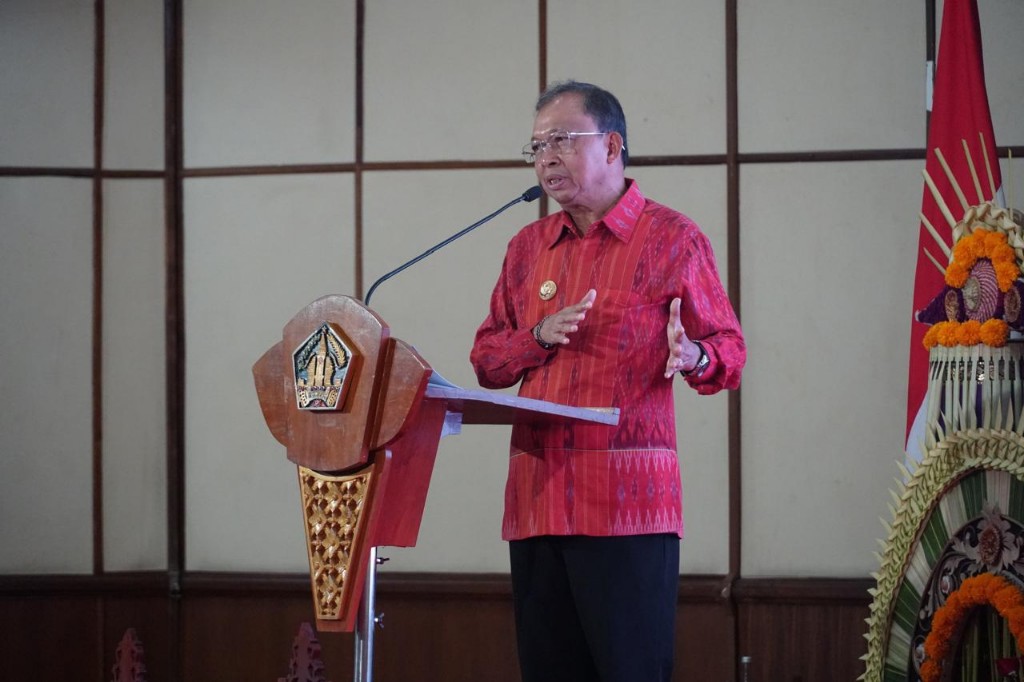The Indonesian public was recently stirred by a surprising statement from Bali Governor Wayan Koster. In a national event, Koster suggested that Indonesia should consider learning agricultural technology from Israel to improve domestic food production and sustainability. This recommendation has drawn mixed responses, especially considering Indonesia’s lack of diplomatic relations with Israel. However, from a technological and agricultural standpoint, his suggestion sparks an important discussion about the need for innovation in Indonesian farming.
Israel’s Agricultural Technology: A Global Model for Arid Regions
Israel has long been recognized as one of the leading nations in agricultural technology. Despite its limited natural water resources and arid climate, Israel has managed to transform its land into one of the most productive agricultural systems in the world. The country has pioneered a wide array of innovations, such as:
- Drip irrigation systems, which optimize water use.
- Smart greenhouses that use sensors and data for productivity.
- Agri-tech startups focused on precision farming, AI-based crop management, and satellite imagery.
These innovations make Israel a compelling case study for countries like Indonesia that face challenges with food security, climate adaptation, and smallholder farming inefficiencies.
Why Wayan Koster's Statement Matters for Indonesia
Governor Wayan Koster’s comments are notable not just because of the political context, but also because they highlight a critical issue: Indonesia’s agricultural productivity is lagging behind. Many Indonesian farmers still rely on traditional farming methods, which are vulnerable to climate change, pests, and water scarcity. Yields remain low in several regions, and post-harvest loss continues to be a problem.
By looking into the agricultural technology Israel has developed, Indonesia could:
- Improve water efficiency through precision irrigation.
- Reduce fertilizer and pesticide use with data-driven solutions.
- Increase crop yields while preserving the environment.
- Digitize smallholder agriculture for better market access and decision-making.
While diplomacy is one thing, technology transfer through third-party institutions or multinational agri-tech companies could be a workaround to apply these learnings locally.
Bridging the Political Gap for Practical Collaboration
Indonesia and Israel do not maintain official diplomatic relations, which complicates direct bilateral cooperation. However, this has not prevented other predominantly Muslim nations, such as the United Arab Emirates and Morocco, from collaborating with Israel on technological and agricultural issues under the Abraham Accords framework.
In Indonesia's case, non-political channels such as academic exchanges, multilateral platforms, or private sector cooperation could allow for agricultural technology Israel to be introduced without triggering political backlash.
Several Indonesian agribusinesses have already explored collaborations with Israeli companies via Singapore or the Netherlands, acting as intermediaries. These indirect partnerships could pave the way for adopting best practices without compromising national foreign policy positions.
Learning Without Importing Politics
The public reaction to Wayan Koster’s statement reflects the broader challenge of separating technological needs from geopolitical considerations. However, Indonesia stands to benefit from a pragmatic approach. In an era where climate change threatens food systems, adopting effective and proven technologies should be prioritized over political sensitivities.
Moreover, by localizing the innovations, Indonesia can avoid importing entire models and instead adapt the core ideas to suit local cultural, environmental, and economic contexts.
Examples of localized applications include:
- Adapting drip irrigation to smallholder rice paddies in Java.
- Deploying IoT-based pest monitoring in Sumatra’s palm oil plantations.
- Using AI to improve harvest forecasts in Eastern Indonesia’s drier regions.
The goal is not to “copy Israel” but to learn from agricultural technology Israel has developed and adapt it to fit Indonesia’s own path to food sovereignty.
Indonesia’s Long-Term Food Security Challenge
Indonesia is projected to become one of the world’s most populous countries by 2050, yet it remains a net food importer. This is a strategic vulnerability that technology can help solve. If the country wants to reduce reliance on imported rice, soy, garlic, and beef, it must radically modernize its agricultural sector.
In this context, Wayan Koster’s remarks are not as controversial as they first appear. They serve as a wake-up call that Indonesia cannot continue to rely solely on conventional policies. The agricultural revolution must be innovation-led.
This includes:
- Expanding government support for agri-tech startups.
- Reforming agricultural education to include global tech exposure.
- Offering incentives for farmers who adopt modern practices.
- Collaborating with global partners—regardless of politics—through neutral channels.
Conclusion: Focusing on the Future of Farming
Governor Wayan Koster’s proposal to explore agricultural technology from Israel may have raised eyebrows, but it also brings much-needed attention to Indonesia’s outdated farming systems. At a time when food security and climate resilience are becoming urgent issues, the country must be bold in seeking solutions, wherever they may come from.
With smart, politically sensitive implementation, Indonesia can adopt cutting-edge technology while preserving its diplomatic stance. What matters most is ensuring that Indonesian farmers are empowered to feed the nation efficiently, sustainably, and with dignity.
Read More






 Sunday, 01-03-26
Sunday, 01-03-26







